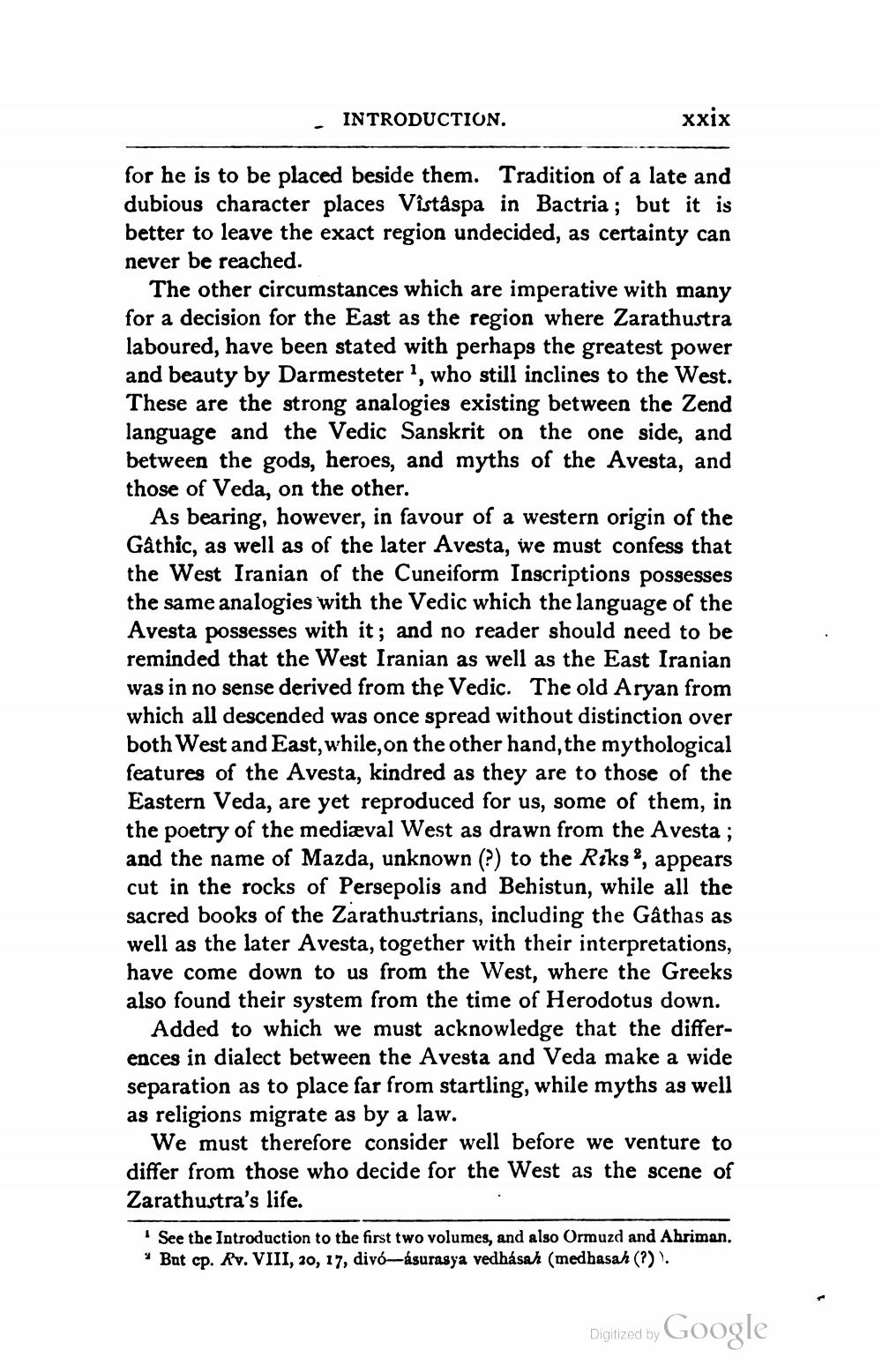________________
INTRODUCTION.
xxix
for he is to be placed beside them. Tradition of a late and dubious character places Viståspa in Bactria ; but it is better to leave the exact region undecided, as certainty can never be reached.
The other circumstances which are imperative with many for a decision for the East as the region where Zarathustra laboured, have been stated with perhaps the greatest power and beauty by Darmesteter, who still inclines to the West. These are the strong analogies existing between the Zend language and the Vedic Sanskrit on the one side, and between the gods, heroes, and myths of the Avesta, and those of Veda, on the other.
As bearing, however, in favour of a western origin of the Gâthic, as well as of the later Avesta, we must confess that the West Iranian of the Cuneiform Inscriptions possesses the same analogies with the Vedic which the language of the Avesta possesses with it; and no reader should need to be reminded that the West Iranian as well as the East Iranian was in no sense derived from the Vedic. The old Aryan from which all descended was once spread without distinction over both West and East, while, on the other hand, the mythological features of the Avesta, kindred as they are to those of the Eastern Veda, are yet reproduced for us, some of them, in the poetry of the mediæval West as drawn from the Avesta ; and the name of Mazda, unknown (?) to the Riks?, appears cut in the rocks of Persepolis and Behistun, while all the sacred books of the Zarathustrians, including the Gâthas as well as the later Avesta, together with their interpretations, have come down to us from the West, where the Greeks also found their system from the time of Herodotus down.
Added to which we must acknowledge that the differences in dialect between the Avesta and Veda make a wide separation as to place far from startling, while myths as well as religions migrate as by a law.
We must therefore consider well before we venture to differ from those who decide for the West as the scene of Zarathustra's life.
See the Introduction to the first two volumes, and also Ormuzd and Abriman. * But cp. Rv. VIII, 20, 17, divó-ásurasya vedhásah (medhasah (?).
Digitized by
Digitized by Google




